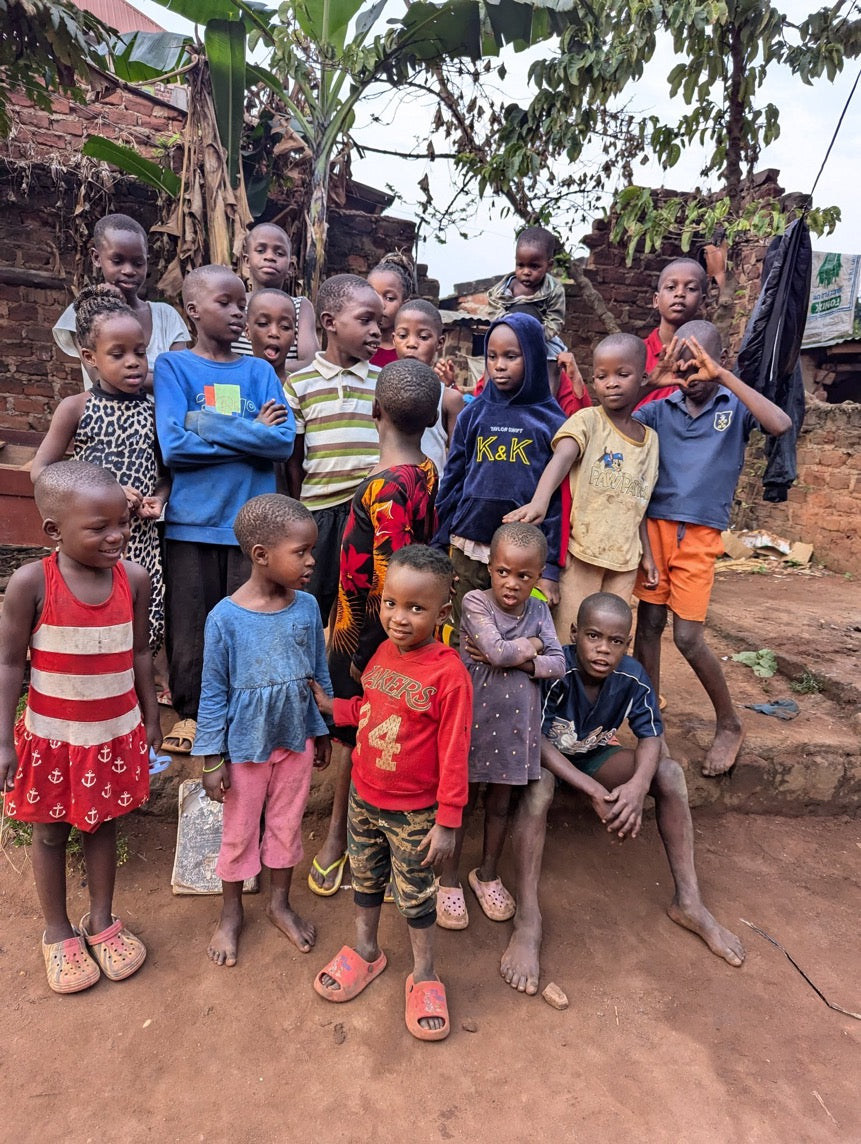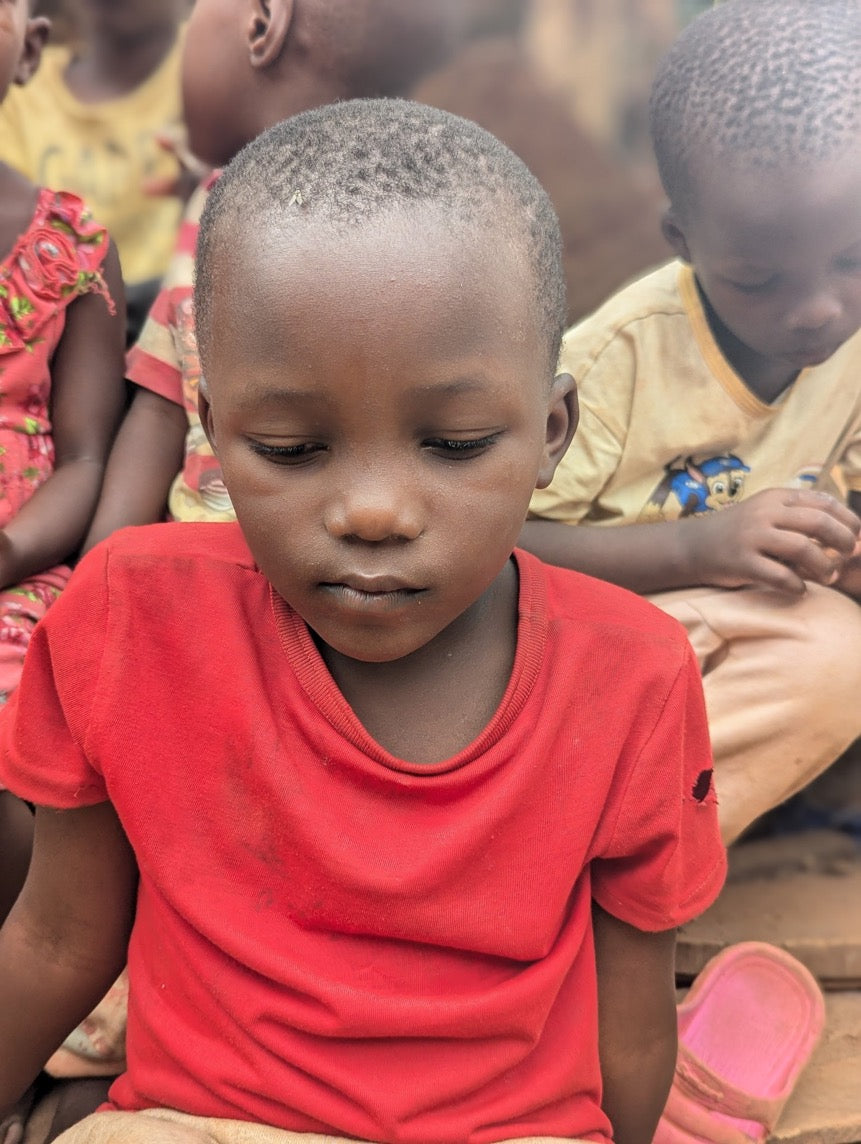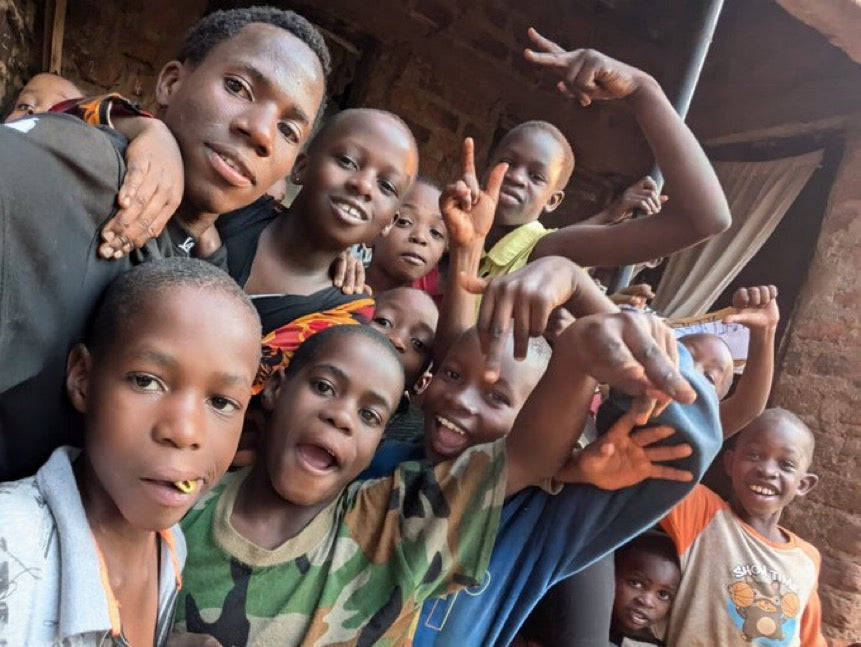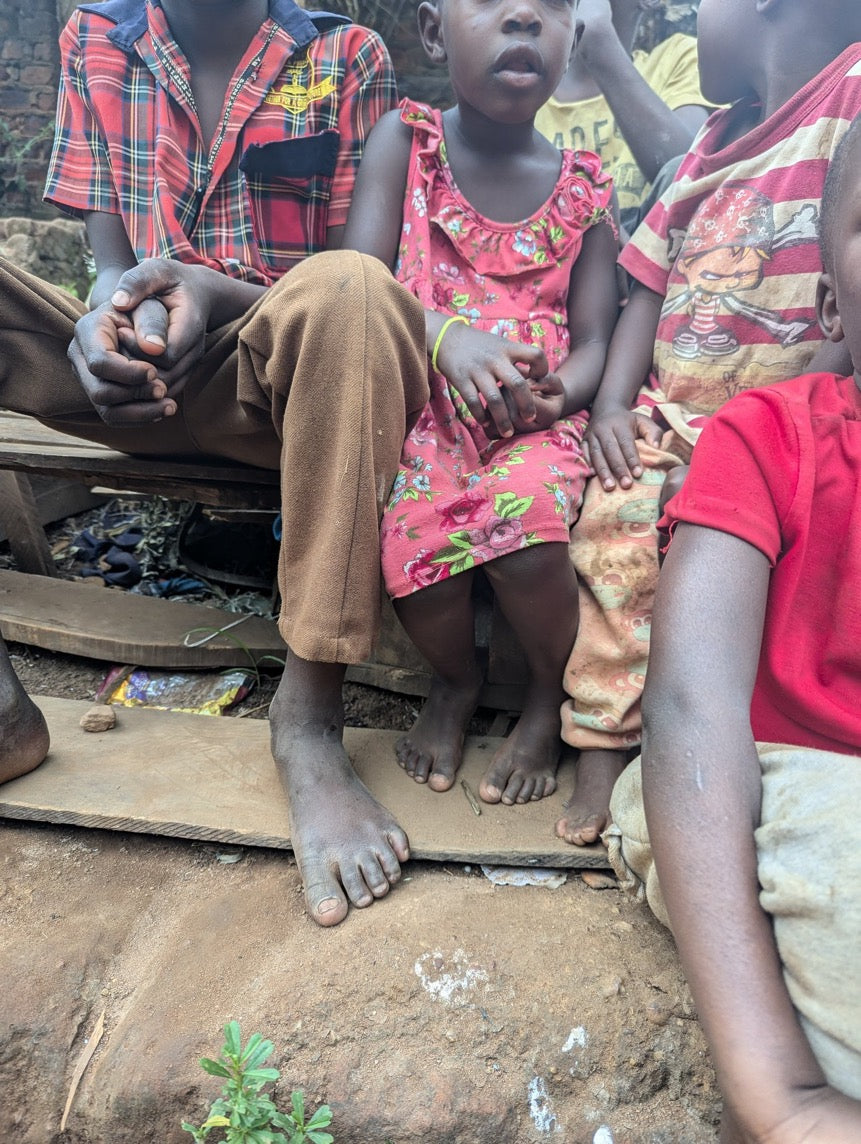Our Mission To Help Those In Need In Uganda
Noah’s Ark
A Genuine Maze of Despair in Uganda's Struggle Under the Yoke of Corruption
In the heart of Africa lies Uganda, a nation where the sun rises over landscapes of unparalleled beauty, yet its people are ensnared in a web of systemic corruption that stifles opportunity and breeds despair.
Here, we delve into the existential plight of its citizens, exploring the intricate network of their daily struggles, shaped by threads of governmental malfeasance.
From the colonial era, Uganda inherited institutions designed not for governance but for control, fostering a culture where accountability was a foreign concept.
This legacy has morphed into a modern day narrative where corruption is not an anomaly but a norm, deeply embedded in the political and economic structure.
Growing up in Uganda, one's horizon is not just limited by economic disparity but by the pervasive influence of corruption. Here, the term "opportunity" resonates with a hollow echo.
Schools, underfunded and often corrupt, become battlegrounds where merit is secondary to who you know.
The allocation of educational resources, like textbooks or even school buildings, is often siphoned off, leaving students in a perpetual state of learning scarcity.
The health sector, a beacon of hope, flickers weakly. Funds meant for medicine or infrastructure are pilfered, leading to a scenario where a simple ailment can become a death sentence due to lack of basic medical supplies or facilities.
The entrepreneurial spirit, which should be Uganda's backbone, is crushed under the weight of bureaucratic corruption.
Starting a business involves navigating a maze of bribes, where the cost of doing business is not just capital but integrity.
The corruption in Uganda operates with a sophistication that rivals any complex system.
At the highest echelons, decisions on infrastructure, defense, and public services are marred by kickbacks, embezzlement, and contracts awarded not on merit but on loyalty or bribes.
On the streets, the common citizen interacts daily with corruption.
From police officers expecting bribes at checkpoints to teachers demanding extra fees for passing grades, the system is rigged against the honest.
This environment breeds a culture of cynicism where trust in institutions is non-existent.
The psychological impact on the youth, who see no path forward, leads to a societal malaise where ambition is curtailed by the reality of corruption's omnipotence.
Imagine a child in Uganda, whose dreams of becoming a doctor are not just challenged by the lack of resources but by the systemic corruption that dictates who gets into medical school.
Or consider the farmer whose crops could feed a village, yet he's forced to pay bribes at every market to sell his produce, reducing his profit to mere subsistence.
The narrative of Uganda's corruption isn't just a tale of woe but a clarion call for systemic change.
The protests, met with governmental resistance, highlight a populace yearning for transparency, accountability, and justice.
In Uganda, the struggle against corruption is not merely political; it's existential.
For its citizens, every day is a battle against an invisible enemy that saps the vitality of their nation.
This narrative, painted with the sophisticated strokes of systemic analysis, reveals not just a crisis of governance but a crisis of hope, where the very foundation of society is at risk of unraveling due to corruption's insidious grip.
The fight for Uganda's future is not just for better governance but for the soul of its people, yearning for a chance to dream without the shadows of corruption looming over them.
In the heart of Africa lies Uganda, a nation where the sun rises over landscapes of unparalleled beauty, yet its people are ensnared in a web of systemic corruption that stifles opportunity and breeds despair.
Here, we delve into the existential plight of its citizens, exploring the intricate network of their daily struggles, shaped by threads of governmental malfeasance.
From the colonial era, Uganda inherited institutions designed not for governance but for control, fostering a culture where accountability was a foreign concept.
This legacy has morphed into a modern day narrative where corruption is not an anomaly but a norm, deeply embedded in the political and economic structure.
Growing up in Uganda, one's horizon is not just limited by economic disparity but by the pervasive influence of corruption. Here, the term "opportunity" resonates with a hollow echo.
Schools, underfunded and often corrupt, become battlegrounds where merit is secondary to who you know.
The allocation of educational resources, like textbooks or even school buildings, is often siphoned off, leaving students in a perpetual state of learning scarcity.
The health sector, a beacon of hope, flickers weakly. Funds meant for medicine or infrastructure are pilfered, leading to a scenario where a simple ailment can become a death sentence due to lack of basic medical supplies or facilities.
The entrepreneurial spirit, which should be Uganda's backbone, is crushed under the weight of bureaucratic corruption.
Starting a business involves navigating a maze of bribes, where the cost of doing business is not just capital but integrity.
The corruption in Uganda operates with a sophistication that rivals any complex system.
At the highest echelons, decisions on infrastructure, defense, and public services are marred by kickbacks, embezzlement, and contracts awarded not on merit but on loyalty or bribes.
On the streets, the common citizen interacts daily with corruption.
From police officers expecting bribes at checkpoints to teachers demanding extra fees for passing grades, the system is rigged against the honest.
This environment breeds a culture of cynicism where trust in institutions is non-existent.
The psychological impact on the youth, who see no path forward, leads to a societal malaise where ambition is curtailed by the reality of corruption's omnipotence.
Imagine a child in Uganda, whose dreams of becoming a doctor are not just challenged by the lack of resources but by the systemic corruption that dictates who gets into medical school.
Or consider the farmer whose crops could feed a village, yet he's forced to pay bribes at every market to sell his produce, reducing his profit to mere subsistence.
The narrative of Uganda's corruption isn't just a tale of woe but a clarion call for systemic change.
The protests, met with governmental resistance, highlight a populace yearning for transparency, accountability, and justice.
In Uganda, the struggle against corruption is not merely political; it's existential.
For its citizens, every day is a battle against an invisible enemy that saps the vitality of their nation.
This narrative, painted with the sophisticated strokes of systemic analysis, reveals not just a crisis of governance but a crisis of hope, where the very foundation of society is at risk of unraveling due to corruption's insidious grip.
The fight for Uganda's future is not just for better governance but for the soul of its people, yearning for a chance to dream without the shadows of corruption looming over them.











